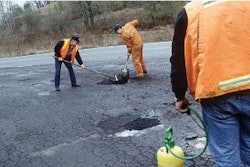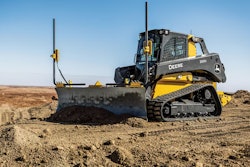“Equipment distributors in Ohio and Pennsylvania overwhelmingly believe that the shale energy sector has the potential to be an economic game-changer,” Dennis Heller, president and CEO of Stephenson Equipment in Harrisburg, Pa., told a congressional committee Feb. 27. Heller was testifying at a U.S. House of Representatives Natural Resources Committee Energy & Mineral Resources Subcommittee field hearing in Steubenville, Ohio, on the impact of shale energy development.
Appearing in his capacity as a member of the Board of Directors of Associated Equipment Distributors (AED), an international trade association representing construction equipment companies, Heller spoke about the effect that shale energy production has had on his business and other local equipment dealers.
“Energy companies have invested substantial resources in building and expanding roads and highways for hauling sand, water, pipes, and other materials to and from sites in the Marcellus Shale formation,” all of which has driven equipment demand, Heller told lawmakers.
Heller said that his company was not unique in having benefited from the shale energy boom and described an AED survey of equipment companies in the Marcellus and Utica shale area. Fourteen out of the 15 companies responding to the survey said some portion of their 2011 revenues was directly or indirectly attributable to energy production. The total aggregate revenue from energy production reported by respondents was $356 million, an average of $25.4 million per company.
AED estimates that shale energy is supporting more than 570 jobs at those member companies in Ohio and Pennsylvania and that the economic ripple effect of the $356 million spent on equipment and related services is more than $1.135 billion. Eighty-seven percent of survey respondents said that the continued growth of shale energy production would permit expansion and hiring in the construction equipment industry.
Heller cautioned that imprudent government action could undermine the vitality of this sector. “Policymakers must protect public health, safety, and the environment, while allowing the shale energy industry to grow and prosper. Washington bureaucrats must refrain from regulating the industry to death and instead allow state governments to measure the benefits and impacts of shale energy development,” Heller said.
Heller’s written testimony, with a more thorough analysis of the AED survey results, is available at www.aednet.org/government/pdf-2012/AED-HellerWrittenTestimony-20120221.pdf.
More information about the Steubenville hearing is available on the House Natural Resources Committee’s hearing page.












